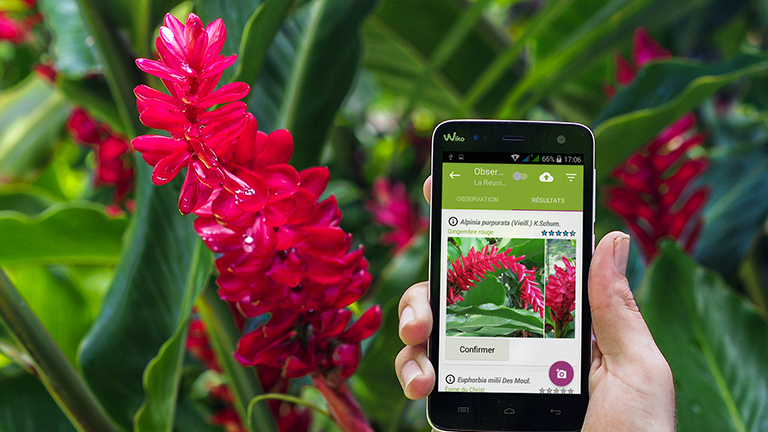
This webinar will introduce the Pl@ntNet platform and its usage for educational projects focused on plant biodiversity monitoring. It will start with a brief introduction to botany and what it is necessary for engaging in plant identification. It will be followed by a description of the Pl@ntNet platform and its capacities, on mobile and web devices. Several educational programs based on Pl@ntNet will be outlined, to open the discussion on the opportunities for school-based educational.
During the webinar, you will find out why it is important to monitor plant biodiversity, how a citizen science platform such as Pl@ntnet can promote plant monitoring and identification and how Pl@ntnet can be integrated in Environmental Education practice in Greek schools.
 Citizen observatory
Citizen observatory
 Agenda
Agenda
- Why is it important to monitor plant biodiversity?
- How can citizen science support plant monitoring and identification?
- The Pl@ntNet platform: how does it work, how can you participate, how can it be used in school practice?
- Questions and discussion
Join us! Webinar via Zoom.
 The speakers
The speakers
Alexis Joly
A senior computer scientist and permanent researcher at Inria (French National Institute for Computer Science and Applied Mathematics) working on multimedia information retrieval challenges with related interests in representation learning, computer vision and biodiversity informatics. Since 2011, he is co-leader of the Pl@ntNet project, and since 2014, he has been the Principal Investigator of the LifeCLEF international research platform dedicated to the computer-assisted identification of living organisms.
Pierre Bonnet
A botanist and permanent research scientist at CIRAD in France, based in the AMAP laboratory, which is a Joint Research Unit for plant architecture, specialising in botany and bio-informatics. His topics of interests are: Botany, plant ecology, citizen science and applied computer science. Since 2009, he has worked successively at the National Institute of Agronomy (INRA) and the Agricultural research center for development (CIRAD), as coordinator of Pl@ntNet initiative, and he is product-owner of several relevant computer tools for botanical data management, diffusion and identification tools.
 Organizers
Organizers
The Environmental Education Lab (EEL) is a research center based at the Department of Educational Studies of the National and Kapodistrian University of Athens. EEL advances knowledge with regards to environmental, scientific and citizenship literacy, and promotes educational research and practice on innovative teaching and learning approaches and tools that raise awareness, trigger socio-critical thinking and strengthen action competence on current environmental and sustainability issues. The EEL brings together academic researchers with school education actors, non-formal and informal education organizations to co-define current socio-environmental issues of concern and to co-create research-based knowledge and solutions that are theoretically relevant, socially sensitive and practically applicable in various education contexts.
Cos4Cloud is a European Horizon 2020-funded project to boost citizen science technologies that will co-design and develop ten technological services. The services will be available in the new European Open Science Cloud (EOSC), a virtual space aimed at the European scientific community. 9 citizen observatories participate in the project, among them Pl@ntNet.

















